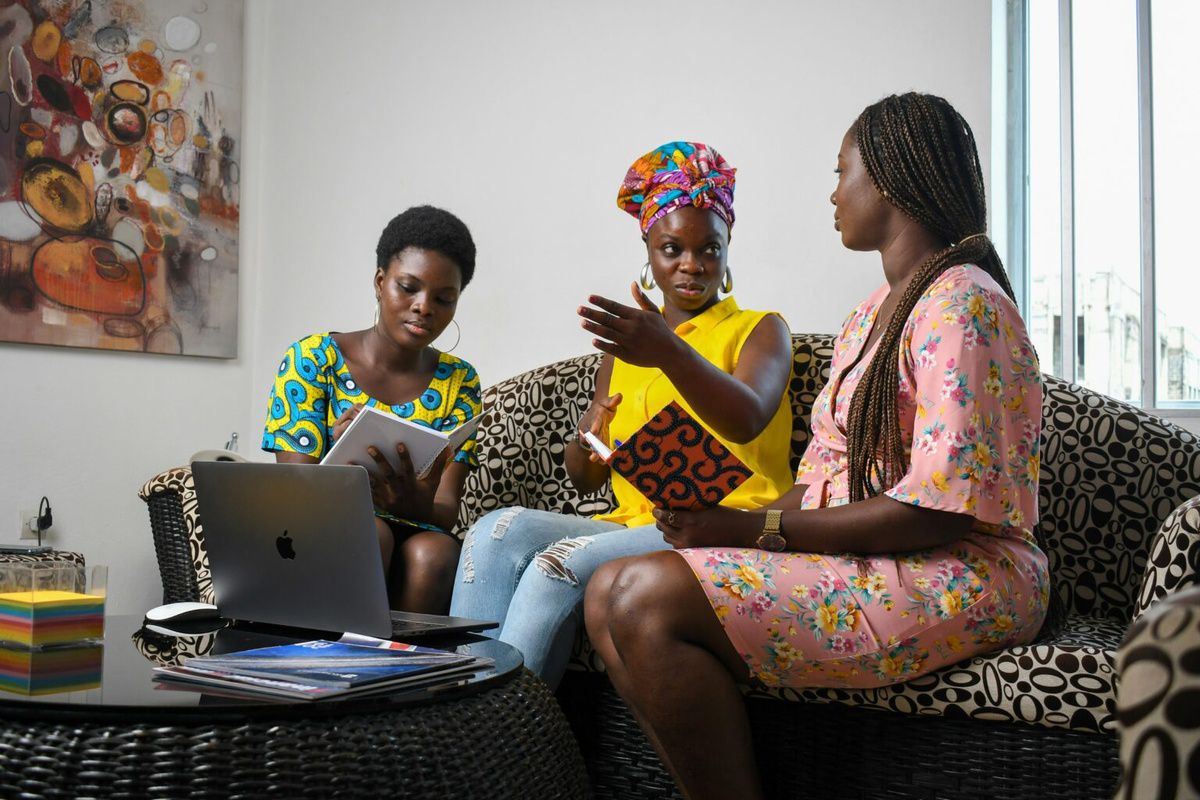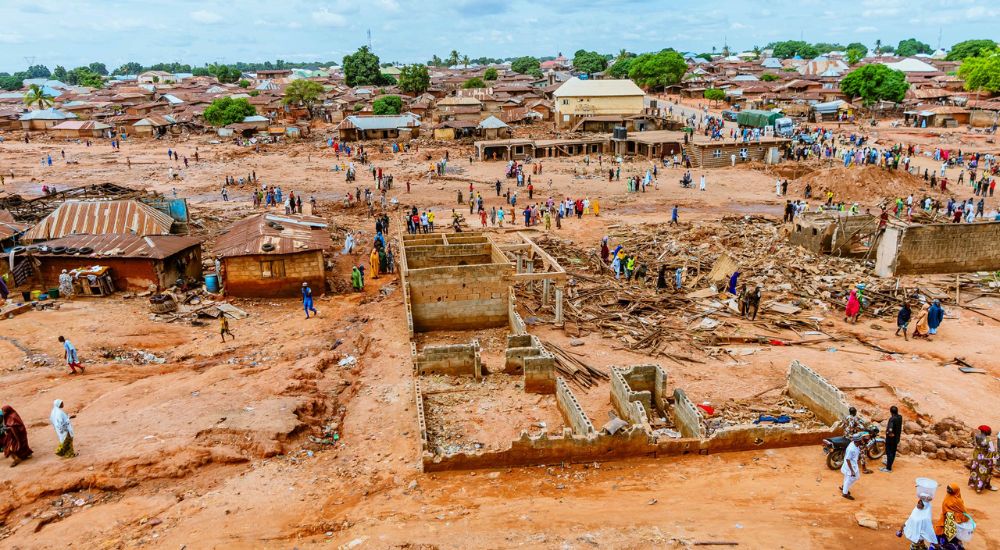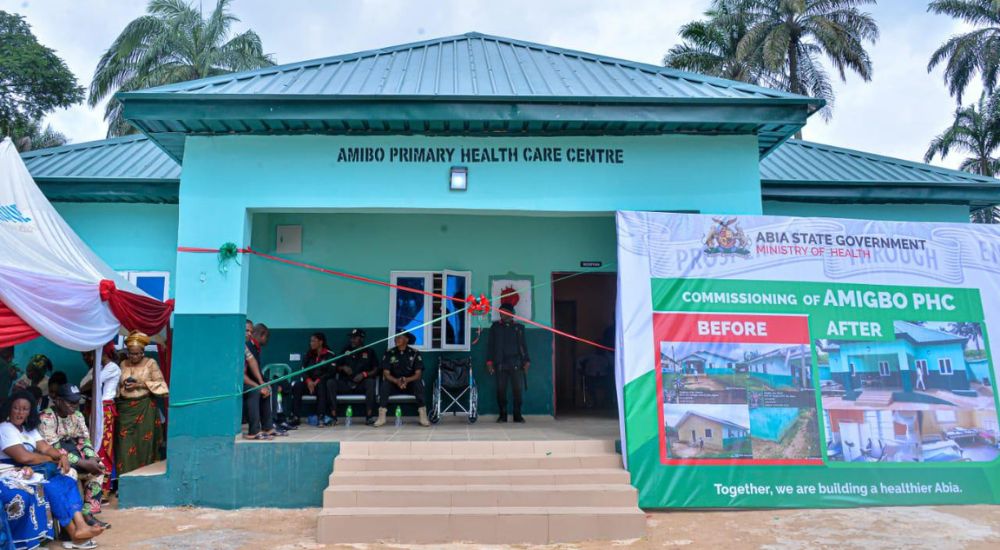Enugu Gov’t Establishing Type-2 Primary Health Centre In Every Ward – Dr Ani-Osheku

Dr Ifeyinwa Ani-Osheku is the Executive Secretary, Enugu State Primary Health Care Development Agency, in this interview with selected newsmen, she reveals how Gov Peter Mbah’s administration is transforming health centres in the state.
How has your agency contributed towards better health for rural people in Enugu State?
We take health care to the doorsteps of the people, right from rural areas to urban areas. It is primary health, but the world has gone digital. We re-improve our reach to the people and also improve the quality of services we render. We are becoming even bolder with how we manipulate our data.
We are transforming the health space by doing trend analyses, and all the correlational studies. This is no longer guess work, it is evidence-based. We also carry out vaccination or immunization. All the vaccines that Enugu State uses are being warehoused by the agency.
Enugu State embarked on a state-wide campaign against measles where all the 17 LGAs were involved. We achieved the target on the measles campaign.
We also embarked on polio campaigns.
In May 2020, Nigeria was declared polio-free, and this came after several years of trying. Unfortunately, Nigeria is beginning to record cases of polio. Enugu State had 98% coverage, exceeding what had been projected for the state.
What about antennal?
Our mandate is to ensure that every woman is able to carry her God-given mandate safely. Pregnancy is not a disease, it is a physiologic requirement. There is no reason why women should die while giving birth.
One maternal death is enough to set up an enquiry as to why that happened and what we can do to prevent it. So we are putting a lot of things in place to ensure that our women do not die as a result of pregnancy.
Statistics have shown that the incidence of anaemia, a shortage of blood in pregnant women, is increasing. When a woman is pregnant, she is sharing her nutrients with her baby.
It puts her in deficit when it comes to blood contents, but when you are talking about a woman that does not have access to nutritionally balanced meals, you can see it is a double jeopardy.
We are also giving supplements to women. During one of our key health weeks, we were able to provide supplements that were given to these women free of charge to ensure that they don’t have shortage of blood known as anaemia during pregnancy.
We also ensure that our women are protected against cervical cancer. Cervical cancer is the second biggest killer of women in Nigeria. It is one of the most expensive diseases to treat. Statistics show that 12,000 women in Nigeria die as a result of cervical cancer.
In 2023, precisely, Nigeria introduced a vaccine known as the human papilloma virus vaccine to prevent cervical cancer. The virus causes cervical cancer.
If someone who has taken the vaccine comes in contact with the virus, there would be no chance of the person developing cervical cancer. That’s one of the things we are doing in Enugu State.
These vaccines are available for girls between the ages of nine and 14, and it’s just one shot. Right now, it’s completely free. One doze ensures that you have life-long protection against cervical cancer.
What kind of support do you get from the state government?
Gov Peter Mbah understands that for his administration to be able to drive the economy of Enugu State to the 30 billion dollars mark and above, health must be prioritised. He has always supported us.
When it comes to the provision of counterpart funding, he is there. We have partners, such as WHO and UNICEF. I give credit to these bodies.
They are always supporting us. When the state is required to pay its counterpart funds, Gov Mbah doesn’t fail. The governor understands that we need funds to achieve some of these things.
Tell us about recruitment of medical personnel in health centres in the state
Enugu State is not spared from doctors’ brain drain. His Excellency approved the recruitment of 2,200 primary health care workers. We don’t just absorb them, we ensure that their skills are of world standards. So we have regular training sections to ensure that our women have all it takes to be able to attend to a birth safely.
I will quickly move into the area of data. Nigeria has been said to be one of the most unsafe places for a woman to give birth; that a woman is ten times likely to die in Nigeria having her baby.
In Enugu State, we are taking very deliberate actions to mitigate that because we want to reverse that ugly trend. In 2023 when we came on board, at the end of that year, our maternal mortality was about 712 for every 100,000.
If you reduce that, it’s about seven maternal deaths for every 1000 babies born. At the end of 2024, we had about 178 per 100,000 child births. If you reduce that, it is barely two for every 1000 births.
We are not at our target yet, but what has happened is that there has been over a 400% drop in maternal mortality. We are hoping that at the end of 2025, we will turn that narrative around.
What about the facilities at various health centres in the state?
From the data that was carried out by the agency in 2023, when His Excellency came on board, we actually had 547 type-2 primary health care centres and nine type-3 primary health care centres.
The type-3 is an advanced level of type-2 where you can also carry out logical interventions. By the time we did our statistics out of this, we could not boast of up to 15% that were worthy of being showcased in any form. That started the construction project we are doing right now.
His Excellency is ensuring every ward in Enugu State has a brand type-2 primary health care centre. A type-2 primary health care centre functions twenty-four hours. Each of these primary health centres comes with a main clinic.
This main clinic has 13 rooms and each of the rooms has 13 beds in every facility. So we have 11 beds and two procedural beds. The procedural beds are the maternity beds.
We have two consulting rooms. We have a pharmacy, and a laboratory. We also have dedicated maternal suites where women have their babies and we have the post-natal wards.
We also have staff quarters and security houses and they are fenced. Each of this facility has renewable green energy by way of solar so that at least it decreases governmental spending on the regular power option.
Each of these facilities has its own solar-driven borehole to ensure constant availability of water supply.
We are also renovating some of our existing primary health centres. Some of them are supported via federal funding while some are still enabled by this same Enugu State government.
Each ward represents the focal primary healthcare centres but it may not be sufficient to take care of the health needs of the people in the community so we came back to the existing ones and upgraded them.
What are your challenges?
One of our major challenges was the inadequate number of our primary health care workers. We are already on top of that.
Another key challenge was the lack of continuity of our data management. We have digitized our systems where over a 100 of our primary health care facilities have been moved from manual means documentation to electronic documentation.
We still have problems with vaccines and how people view health interventions. We are being intentional by trying to change our strategy and educate them using scientific evidence.
We engage religious, traditional, educational and media institutions to help us to cascade down to the people in the community.
Enugu Gov’t Establishing Type-2 Primary Health Centre In Every Ward – Dr Ani-Osheku is first published on The Whistler Newspaper





